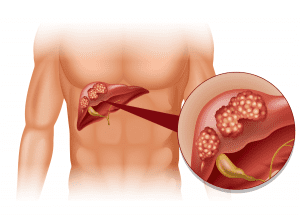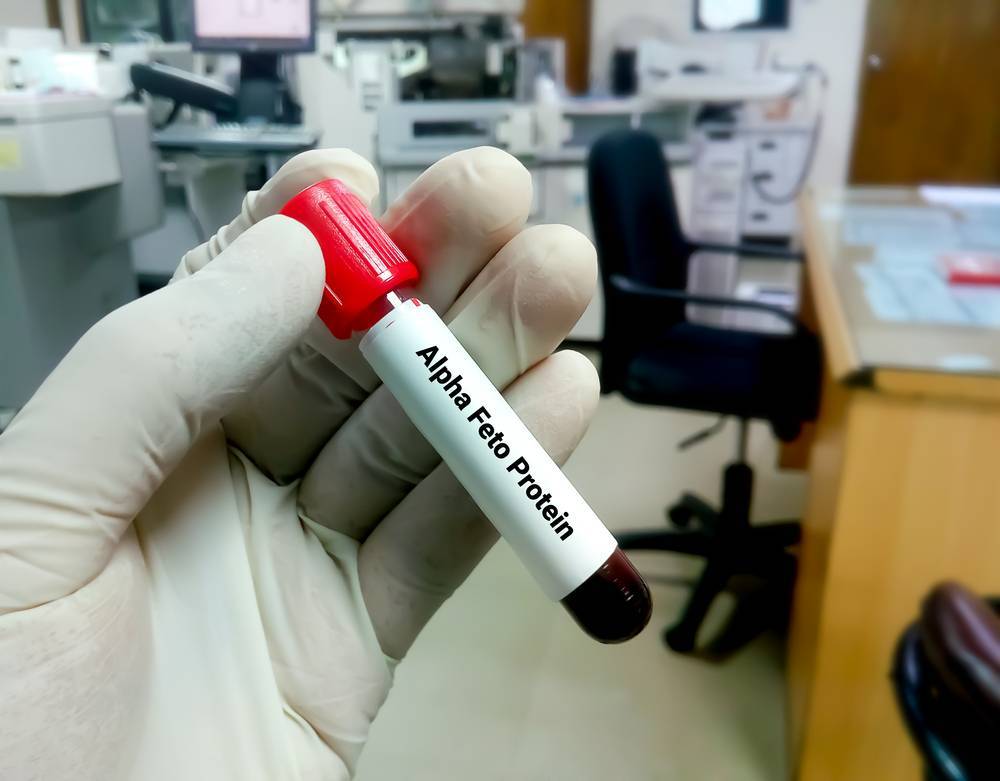Alpha-Fetoprotein (AFP) is a protein normally produced by foetal tissues with unclear function. The AFP level has often been used as a tumour marker for some germ cell and liver tumours in adults.
This article will bring you all you need to know about Alpha-Fetoprotein. 
Function of Alpha-Fetoprotein
As mentioned above, we do not yet know the exact function of AFP. However, we do know that AFP is produced when existing liver cells are growing and replicating to make new cells once we are born. It is produced abundantly in foetal cells for an unknown reason and can be detected in maternal plasma during pregnancy as well. After birth, the AFP level drops to a minimum. In healthy children and non-pregnant adults, its level should be very low in our blood.
AFP as a tumour marker
You might have heard AFP tumour marker test from your doctors, but what does it do exactly? It is a simple blood test, cheap and convenient to be performed in clinical settings, and mainly used to:
- Help with the diagnosis of liver, ovary, and/or testicle cancer, with liver cancer being the most typical and common among the cancer types causing high AFP levels.
- Help predict the progression of cancer
- Monitor cancer treatment. Ideally AFP level would go down after targeted chemo or radiotherapy in cancer patients.
- Monitor for reoccurrence. If a tumour comes back after initial treatment, AFP could be a cheap and convenient test to indicate the reoccurrence.
In general, an AFP level between 0ng/mL to 40 ng/mL is considered normal for adults. Any level above 40 is considered high, and any level above 400 is considered extremely high, which increases the likelihood of a cancer diagnosis. Some other cancers such as lymphoma, and renal cell carcinoma might also result in high AFP levels.
As you can see, the AFP tumour marker test alone cannot make the diagnosis of cancer. Rather, it only helps physicians to reach the diagnosis. It is important to note that not everyone with a typical liver cancer would have raised AFP levels at all stages of their disease. And a raised AFP level could also be from liver cirrhosis or chronic hepatitis. Other investigations such as more blood tests and imaging would be ordered by your doctors to reach a formal diagnosis.
Signs of cancer with raised AFP level
If you are ordered to take an AFP tumour marker test while waiting for the result, which usually takes less than a week, here are some common symptoms of the cancers you might want to know:
Liver cancer:
- Jaundice: your skin and eye white turn yellow
- Itchiness without clear cause: insect bites etc
- Lump and pain over the right upper quadrant of your tummy
- Indigestion
- Nausea and vomiting
- Tiredness
- Fever
- Loss of weight
Ovarian cancer (female only):
- Abdominal bloating
- Pelvic or lower back pain
- Pain during or after sexual intercourse
- Irregular menstrual bleeding
- Constipation or diarrhoea
Testicular cancer (male only):
- Lump, swelling and pain in either testicle
- Pain in the lower belly, lower back, or groin area
- Enlargement of breast
So, should I be worried?
Yes and no. A raised AFP level does not necessarily mean you have cancer. However, it means something is wrong in your body and you should take care of yourself more. Common causes of raised AFP other than cancer such as hepatitis is medically treatable. Early intervention can avoid permanent damage and significantly reduce the likelihood of developing liver cancer as a result. Once you get the result of your AFP test, check with your treating team, and follow their instructions carefully. Maintain a positive attitude but take care of yourself.

